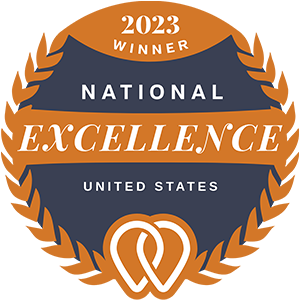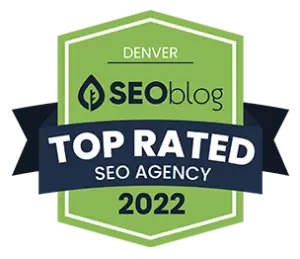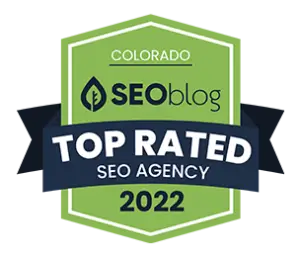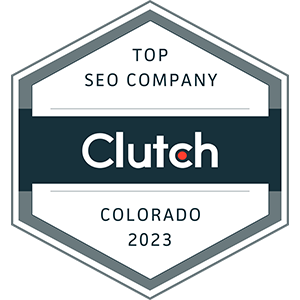“Thanks to them, we appear on the first page when searched on Google, we dominate our space.” – Jay E.
DENVER’S MOSTTRUSTED SEO AGENCY
Firestarter SEO has been providing Denver SEO Services for over 12 years. We have created and executed countless search engine optimization strategies delivering massive ROI for our clients making us the Denver CO most trusted SEO company.
Meet Our Happy Denver SEO Clients
What Our Client’s Say
We’ve earned 4.8 stars on Google and 4.9 stars on Clutch and are currently ranked the #2 Denver SEO Agency by Clutch. Don’t take our word for it see what our clients have to say:
EFFECTIVE SEO THAT DELIVERS RESULTS FOR DENVER BUSINESSES
OUR PROVEN 5 POINT SEO STRATEGY.
Our five-point SEO strategies are created uniquely for each of our clients’ businesses. Our strategies use a framework that focus on uncovering ‘intent-based’ keywords potential customers use to find businesses like yours and then ranking them with our proven link building strategies. While other digital marketing agencies only site traffic – we care about high-quality leads, enquiries or sales made online.
Analyze and
Audit
The initial status of your SEO is critical. Gathering a full understanding of your website and what marketing services have been executed in the past gives us the details needed to create a successful, customized blueprint for success around your desired results. As we explore your website’s content, doing keyword research and a link profile analysis we are able to pinpoint any critical obstacles that may exist.
Plan And Strategize
After gathering the information from our in-depth audit, we create the roadmap to fuel your results. While we do follow a tried and true framework for implementation, each client and each SEO campaign is unique and requires special attention. With this in mind, the fuel we use for results is uniquely crafted to fit the needs of the campaign itself. The foundation of our SEO campaigns are centered around keywords. We then design an advanced link building strategy around these keywords and what links the domain lacks.
Implement
Once the foundation is established and we have a comprehensive understanding of the opportunity your domain possesses, we begin the implementation phase. We start with the essential on-site SEO elements, including title tags, meta descriptions, site architecture, interlinking pages, and more, all while creating unique, engaging, and highly linkable content. This focus lets results accelerate initially and sets the stage for continued success with the support of our efforts.
Link Building
Your link profile is similar to a book of references with Google. Our natural and authoritative link building campaigns rely on a quality over quantity mentality. Most of the time spent on link building centers around creating unique and useful content, content marketing,, and then finding relevant websites which Google trusts to place content on. We constantly monitor your link building campaign for maximum effectiveness.
Monitor & Report
The best systems in the world are nothing if they lack transparency and an advanced SEO campaign is no different. We want to give you the opportunity to have ownership of your campaign and our monthly reports and reporting dashboard do just that. Our custom monthly reports feature rankings, traffic, new links, task reports and more. Each of our clients also has regular access to their reporting dashboard to view different time frames and instant results. This process allows you to understand the efforts taking place within the campaign, and allows us to fine tune your campaign on the fly.
CASE STUDY
HOW A TRAVEL COMPANY INCREASED ORGANIC WEBSITE TRAFFIC BY 100%.
CASE OVERVIEW
A Golfing companying focusing on C-Suite level execs looks to increase bookings in Florida, Arizona, and California.
OTHER CASE STUDIES
5 REASONS WHY DENVER LOVES OUR SEARCH ENGINE OPTIMIZATION
Firestarter SEO is an SEO company born, raised and based in Denver Colorado. Much of our SEO team calls the Mile High City home. Denver fuels our passion to help local businesses thrive and live their dreams.
We’ve made it our mission to help Denver’s local firms grow and run successful businesses through our search engine optimization services.
Firestarter SEO is Denver’s #1 SEO agency and has been serving Denver for 10+ years. We have built 1000s of successful seo strategies and more importantly we have executed them. We drive results!
Here are 5 reasons to choose our SEO services for your Denver born business.
TRANSPARENCY
With open communication and the most up to date analytics tools you are constantly aware of the progress and results of your campaign. This allows you to trust us and see your investment grow.
KNOWLEDGE
SEO is constantly evolving. Today’s SEO requires developing real understanding of the latest search engine trends and combining that understanding with foundational SEO practices. Our Denver SEO experts give you the confidence that your SEO services are effectively producing a ROI.
APPLICATION
We take the knowledge we have and apply it to your website. As we analyze your website on a regular basis, we gather vital reports and data. We then are able to take this information, create actionable items, and apply our SEO services to your website. Firestarter knows Denver SEO, and that’s what we deliver.
COMPETITIVE PRICING
When it comes to cheap SEO services, you get what you pay for. Because we are not a large Denver digital agency, we are able to keep our overhead costs low, and we pass those savings along to you. When you partner with Firestarter, your dollar goes farther, ensuring you get best seo services and best return on investment.
RESULTS
Our clients are among the most satisfied in the industry. This is demonstrated by our retention rate of twice the industry average. We have ranked websites for thousands of keywords, driving millions of visits and tens of thousands of leads, delivering significant ROI for our clients.
DENVER SEO SERVICES THAT DELIVER A ROI
Our SEO services and digital marketing services are designed to improve your online presence and deliver long term results.
The Gold Standard For Denver SEO Services
SEO
SEO is one of the most effective marketing tools available for businesses. It is extremely valuable because it brings pre-qualified leads and customers to your business. Effective SEO services improve your search rankings, organic traffic, turns leads into customers and increases your bottom line.
On-Site Seo
On-site SEO means optimizing the HTML tags and the content on your website. One site SEO helps Google identify what you want to rank for and what content is important on your website. Proper on-site seo will help google find your website relevant and improve your rankings.
Local Seo
Localized search is the gateway to online visibility for small and medium businesses who only serve a particular area and is a key component to our SEO efforts. Recently, search engines have moved more towards local search results, opening the doors even further to great opportunities for local businesses everywhere. Businesses can now leverage their location and gain relevant visits and potential customers.
Mobile Seo
Over 60% of online searches take place on mobile devices, furthermore many of these searches have local intent. Mobile SEO is optimizing your content and website for mobile devices and local search. Having a fast and responsive website will give you the edge on mobile search.
Site Speed
Along the lines of having a site ready for mobile and local search, Google has made site speed a ranking factor, although a very minor one, it’s becoming more important for a website to load quickly. Following best practices we will get your site loading fast.
Voice Search
As technology advances, voice search is becoming more and more crucial to a company’s online visibility. We can help optimize your website to prepare for the increasing shift to voice searches. We ensure your site is optimized for mobile, using natural language , and focusing on keywords with the right user intent.
Content Creation
Creating content on a regular basis can be tedious and demanding, Firestarter has an advanced copywriting team that can offload this for you. We have years of experience in writing quality content in many industries from technology, plastic surgery, insurance, etc! So no matter your industry we can help you write successful, quality content.
Link Builiding
The #1 google result averages 3.8x more backlinks thent the site ranking below it. Many SEO companies overlook link building or simply don’t do it. A major focus of our SEO services is link building, because this is the single most important activity that drives results.
Conversion Optimization
Conversion Rate Optimization (CRO) is the process of increasing the percentage of site visitors who perform your call to action(s). Once you are getting traffic that traffic needs to convert into leads or transactions. Whether simple or advanced techniques we make sure the traffic hitting your website is converting.
FAQs
How much does SEO cost?
How long does SEO take?
How long do I have to keep doing SEO?
Should I also do PPC?
Latest Tips, Case Studies
& Blog Posts

Local SEO
6 Local SEO Secrets that Will Grow Your Business
During the COVID-19 pandemic, individuals faced challenges that could have never been anticipated, forcing changes to be made in all areas of…
Read Article

























